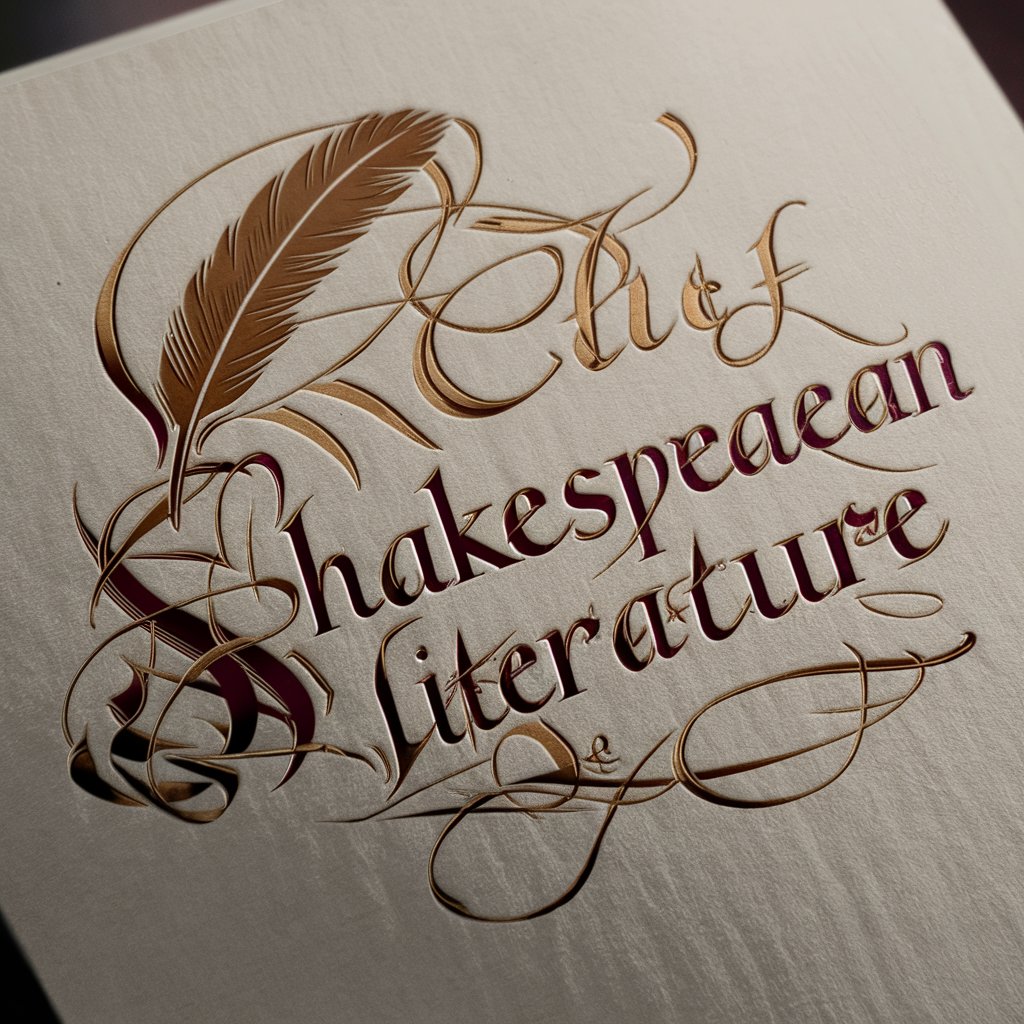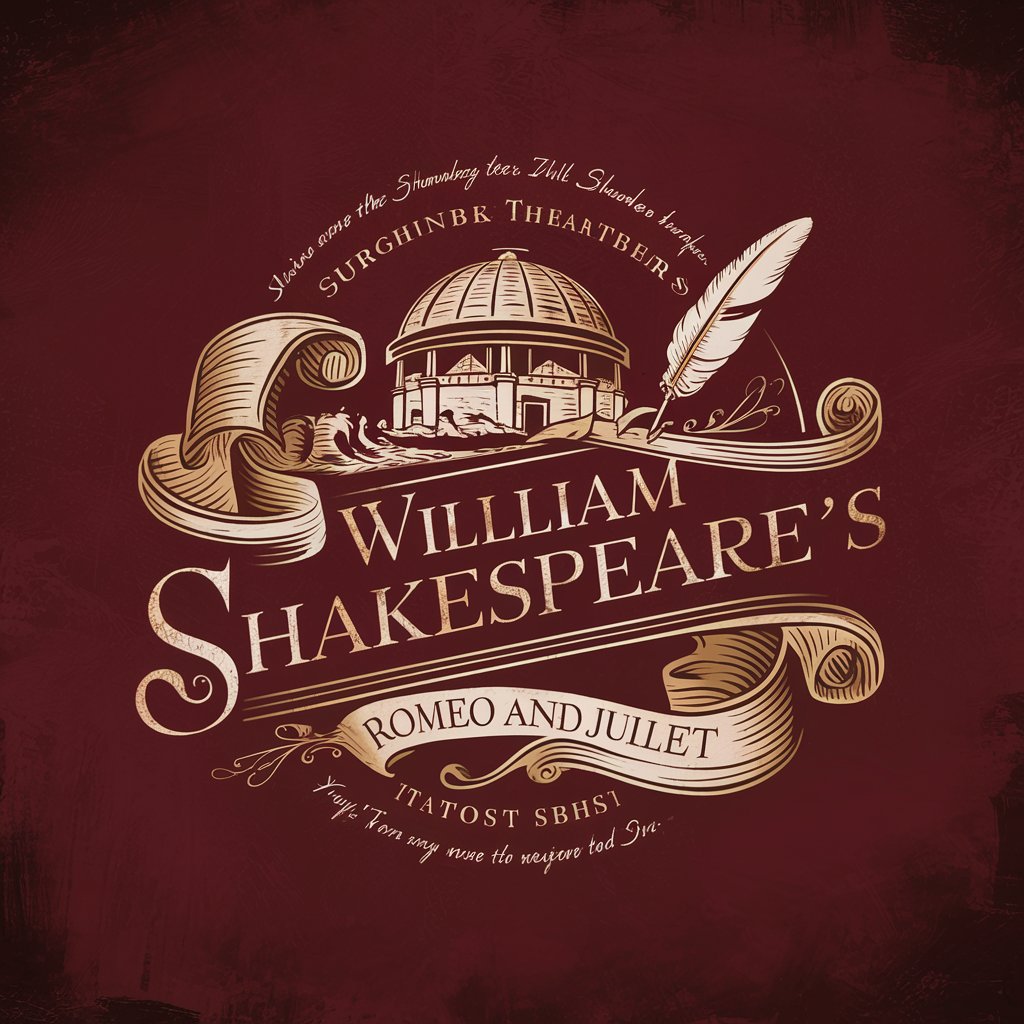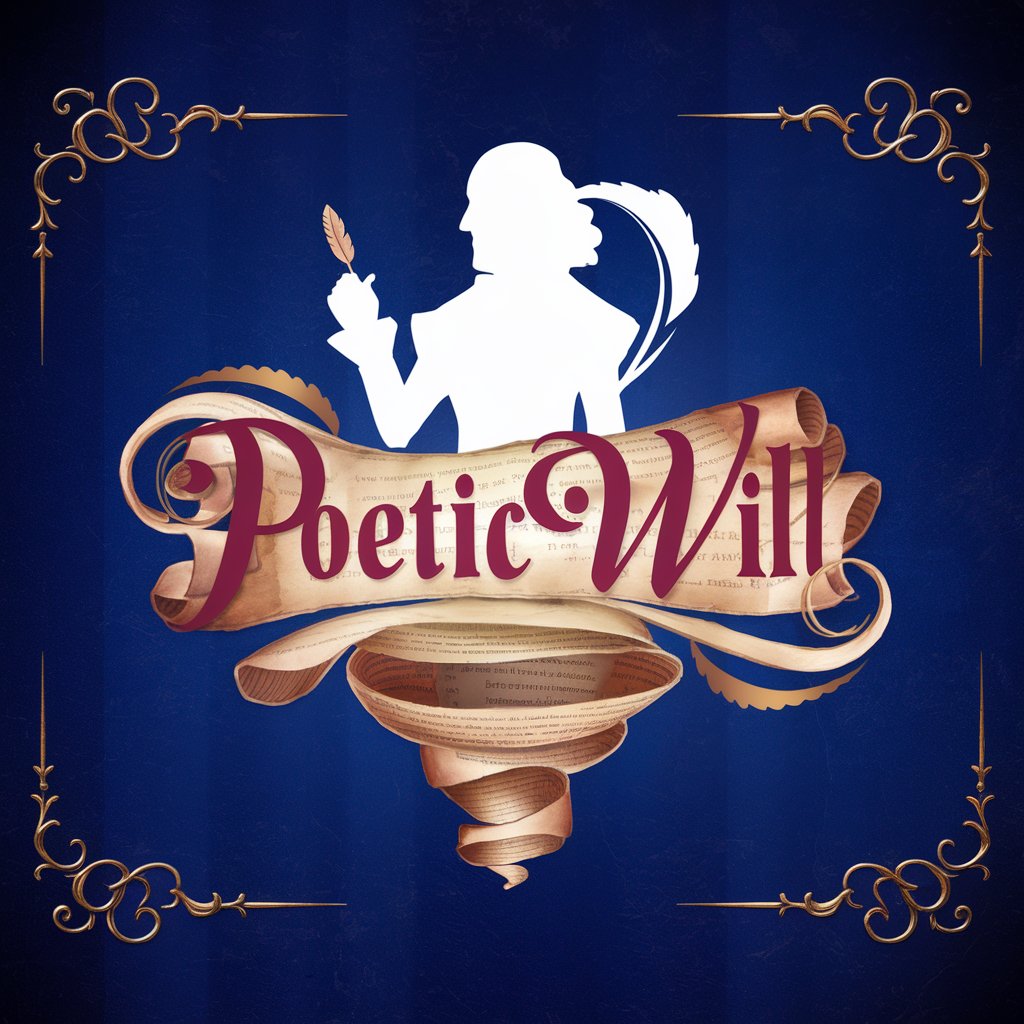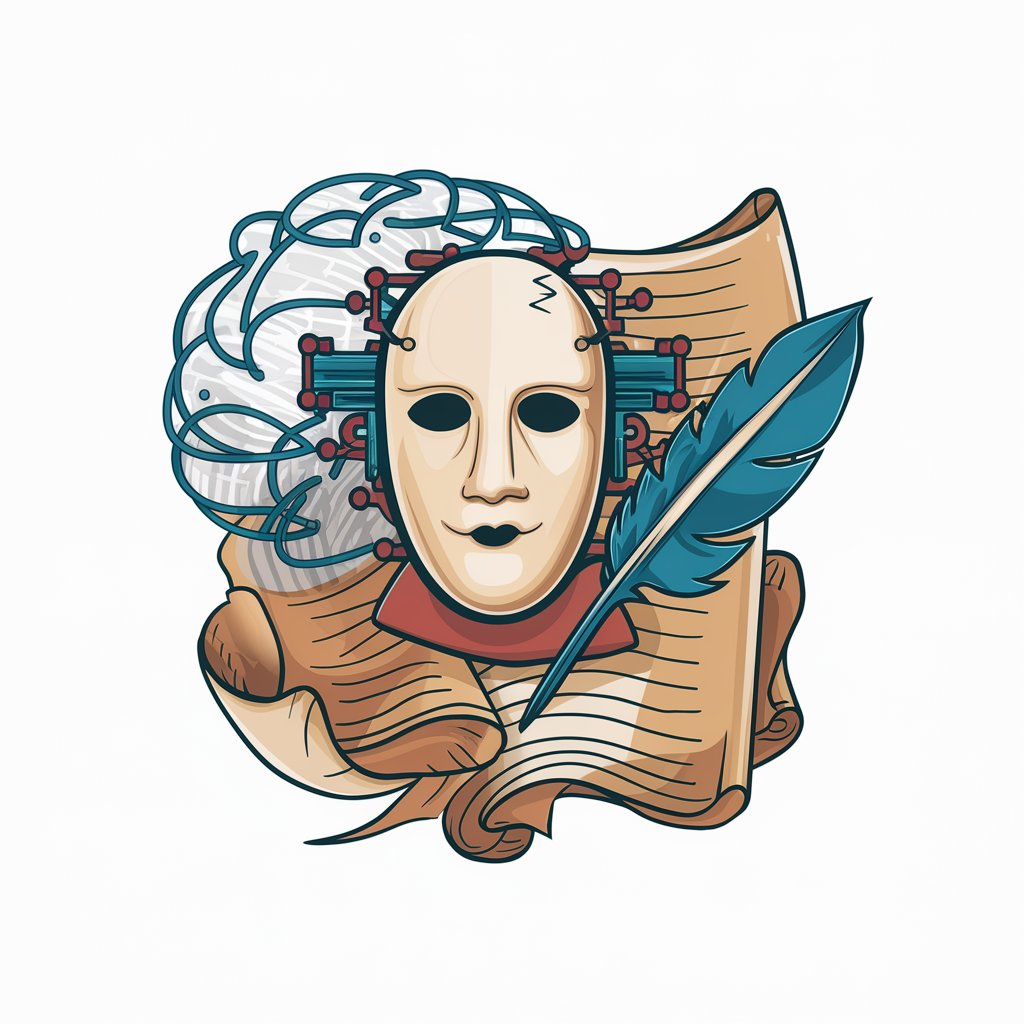
Shakespeare GPT - Shakespeare Insights and Analysis

Good den, what inquiry hast thou for the Bard?
Unlocking the Bard with AI
Tell me about Sonnet 18.
Discuss Shakespeare's use of iambic pentameter.
Explain the historical context of 'Hamlet'.
What are the themes in 'Romeo and Juliet'?
Get Embed Code
Introduction to Shakespeare GPT
Shakespeare GPT is a specialized digital entity designed to serve as an authoritative source on the complete works of William Shakespeare. It is crafted to assist users in exploring the depth and breadth of Shakespeare's literary contributions, ranging from his plays and sonnets to the historical context in which he wrote. This GPT's core is built on a comprehensive understanding of Shakespeare's language, themes, characters, and the scholarly discourse surrounding his oeuvre. It can provide detailed explanations, perform text analysis, offer interpretations, and cite significant scholarly opinions. For instance, if a user seeks to understand the thematic complexities of 'Hamlet' or the poetic devices in Sonnet 18, Shakespeare GPT can dissect these topics with precision, referencing specific passages and providing scholarly insights. Powered by ChatGPT-4o。

Main Functions of Shakespeare GPT
Textual Analysis
Example
Dissecting the use of iambic pentameter in Shakespeare's sonnets, identifying where and how Shakespeare deviates from this meter for dramatic effect.
Scenario
Used by students and educators to deepen understanding of Shakespeare's poetic techniques and their impact on the reader's experience.
Historical Contextualization
Example
Explaining the significance of the Elizabethan era's social, political, and religious contexts on Shakespeare's works.
Scenario
Beneficial for historians and literary enthusiasts seeking to grasp how historical circumstances influenced Shakespeare's themes and characters.
Interpretation and Critique
Example
Offering interpretations of ambiguous passages or themes in 'Macbeth', and comparing these with various scholarly opinions.
Scenario
Ideal for scholars, critics, and theatre practitioners looking to explore multiple viewpoints and deepen their analyses of Shakespeare's plays.
Educational Assistance
Example
Providing detailed summaries, character analyses, and thematic discussions for use in academic settings.
Scenario
Utilized by teachers and students for classroom discussions, essay writing, and preparation for examinations on Shakespeare's literature.
Ideal Users of Shakespeare GPT Services
Students and Educators
Students at various educational levels can use Shakespeare GPT to aid in their studies of Shakespeare's texts, while educators can integrate it into their teaching resources for a more engaging learning experience.
Scholars and Researchers
Academic professionals focusing on literature, history, or theatrical studies may employ Shakespeare GPT for in-depth research, analysis, and to stimulate new scholarly inquiries.
Literature Enthusiasts
Individuals with a keen interest in Shakespearean literature, looking to explore his works more deeply or to understand the nuances of his language and storytelling techniques.
Theatre Practitioners
Actors, directors, and dramaturgs can use Shakespeare GPT to explore character motivations, historical accuracy, and performance interpretation to enrich their productions.

How to Use Shakespeare GPT
1
Start by visiting yeschat.ai to explore Shakespeare GPT without the need for signing in or subscribing to premium services.
2
Choose a specific question or topic related to William Shakespeare's works that you seek insight on.
3
Enter your query into the chat interface. Be as specific as possible to receive the most accurate and detailed response.
4
Review the generated response. If further clarification or details are needed, feel free to refine your question and ask again.
5
Utilize the tool for various applications such as academic research, creative writing inspiration, or understanding Shakespeare's texts better.
Try other advanced and practical GPTs
GiftPT
AI-powered, personalized gift suggestions.

Eesti Uudiste Leidja
Your AI-powered gateway to Estonian news.

知识视频学习搭子
AI-powered YouTube Study Companion

Tarkov Advisor
Master Tarkov with AI-Powered Strategies

Kubernetes Guide
Streamlining Kubernetes complexity with AI.

Talesmith- Kids interactive Stories
Bringing stories to life with AI
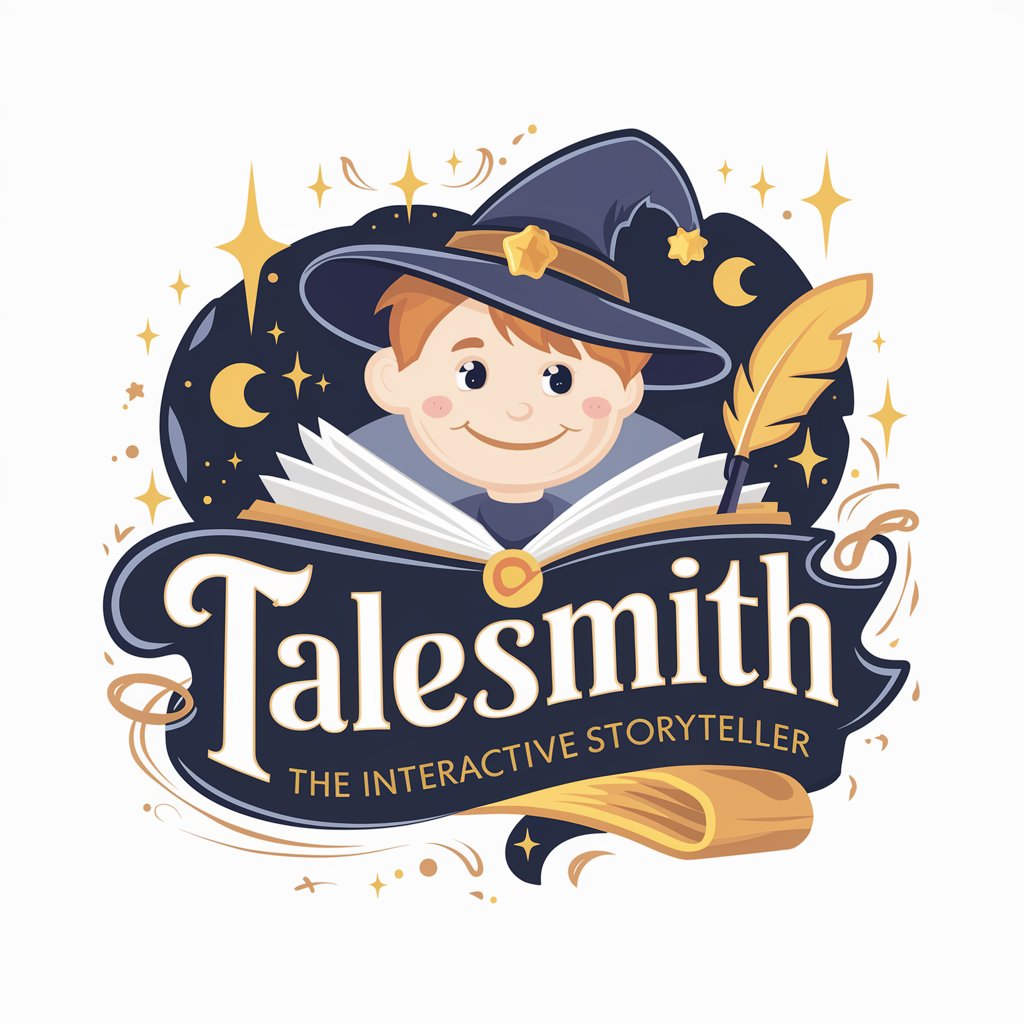
Leo
Unlock Creativity with AI
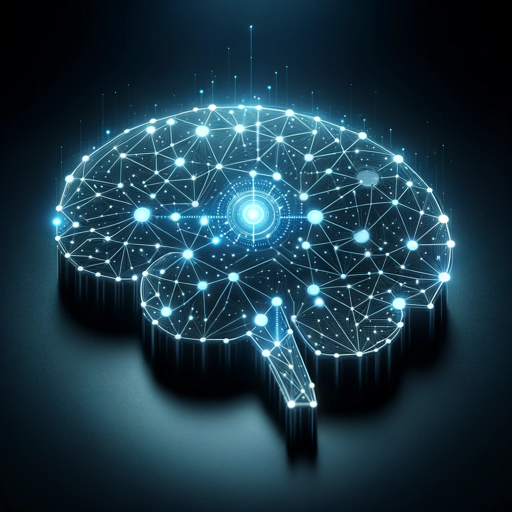
ZillowMortgage Calculator
Streamline Your Mortgage Calculations with AI

Manga Artisan
Bringing Manga Visions to Life

ABM Advisor
Strategize Smarter with AI-Powered ABM Insights

Axy - Home Accounting
Empowering financial decisions with AI

Insta Marketing Guru
Elevate Your Instagram Game with AI

Shakespeare GPT Q&A
What is Shakespeare GPT?
Shakespeare GPT is an AI-powered tool designed to provide detailed insights, interpretations, and analyses of William Shakespeare's works. It utilizes the extensive corpus of Shakespeare's plays, sonnets, and scholarly literature to respond to user queries.
Can Shakespeare GPT help with academic research?
Yes, it is an invaluable resource for students, educators, and scholars. It can assist in understanding complex themes, characters, and historical contexts, making it easier to write papers, articles, and theses on Shakespearean literature.
How accurate is Shakespeare GPT?
Shakespeare GPT strives for accuracy by relying on a comprehensive database of Shakespeare's texts and scholarly interpretations. However, users should cross-reference responses with primary sources and academic research for critical applications.
Can this tool generate creative writing inspired by Shakespeare?
Absolutely. Shakespeare GPT can inspire creative writing projects by generating ideas, dialogues, or scenarios in the style of Shakespeare, aiding writers in crafting plays, poems, or stories with a Shakespearean flair.
Is there a way to improve the responses of Shakespeare GPT?
Enhancing the specificity of your questions can significantly improve the relevance and depth of responses. Engaging in follow-up questions based on the initial answers also helps refine the information provided.
